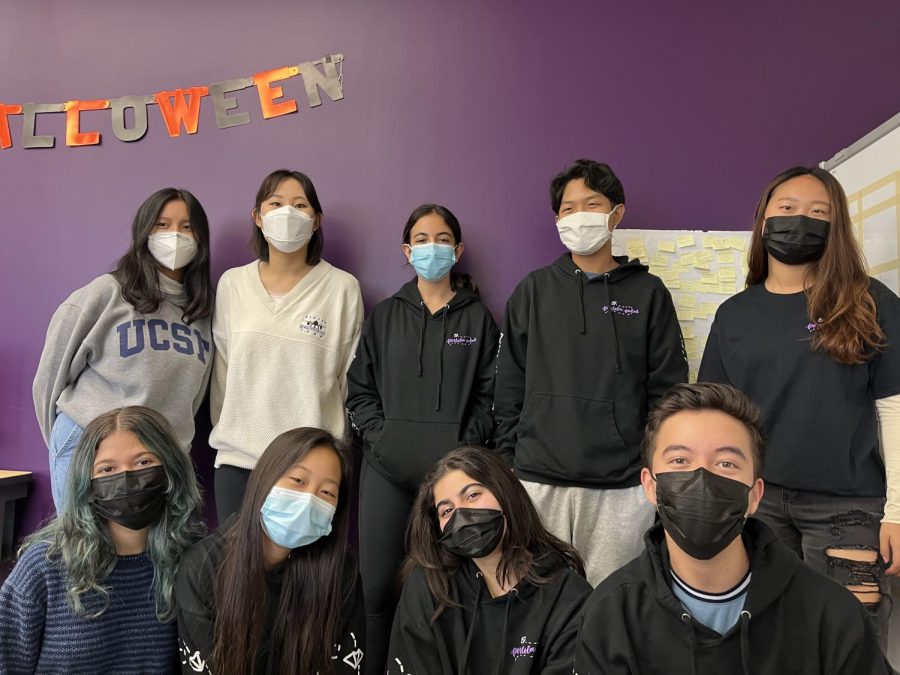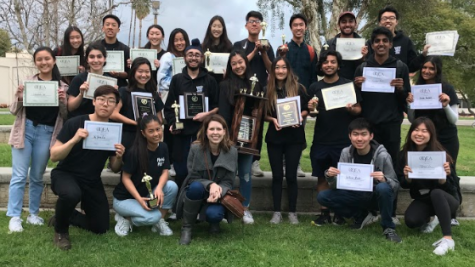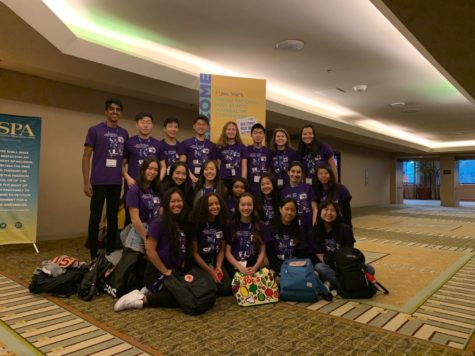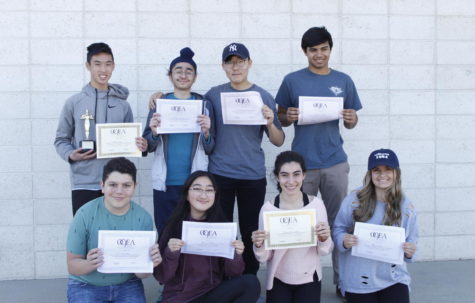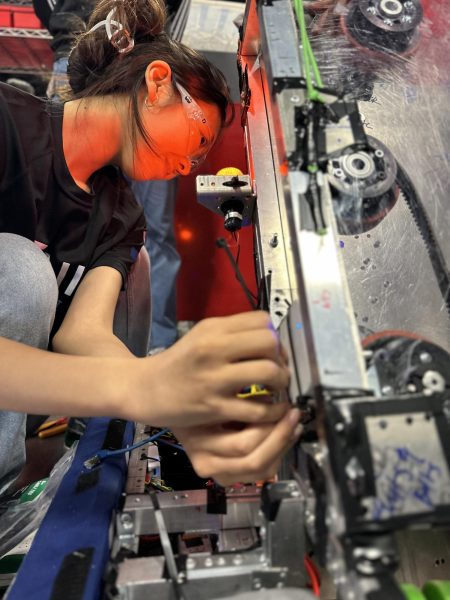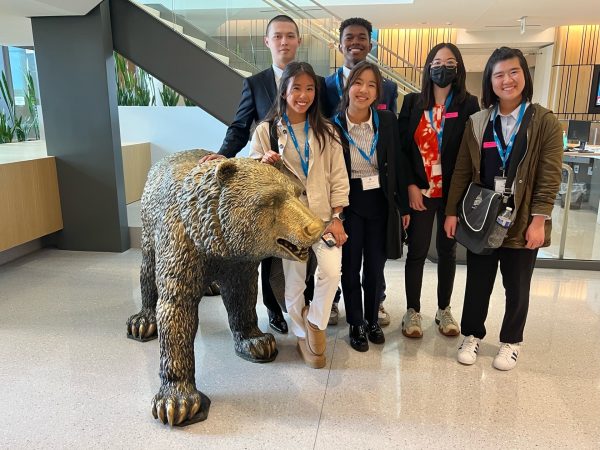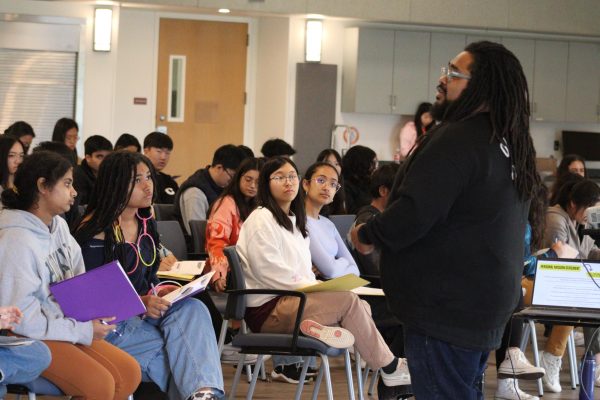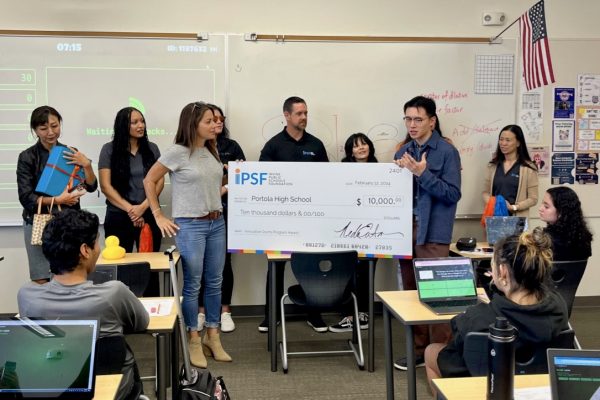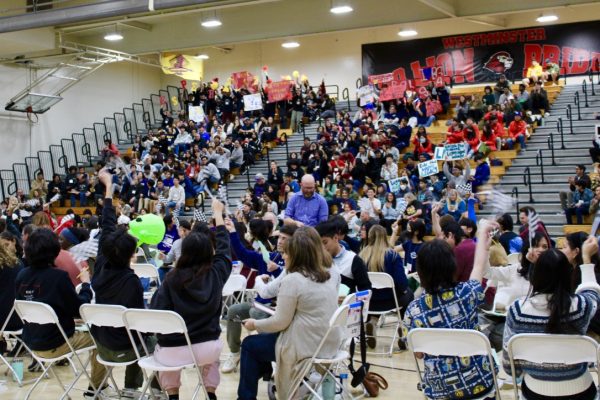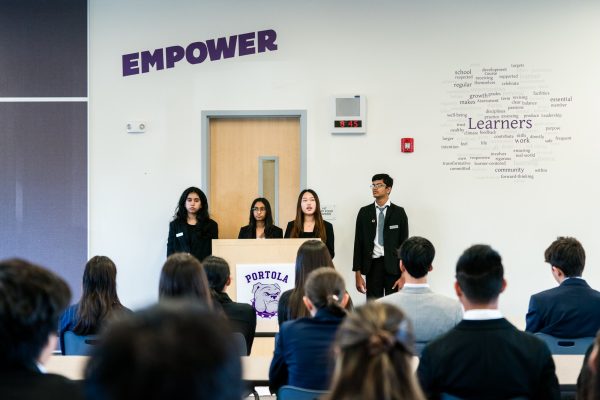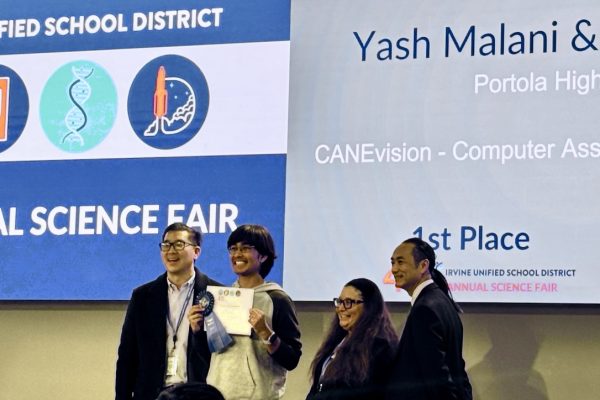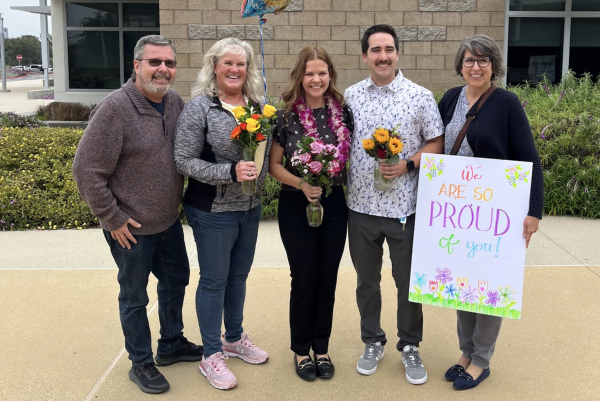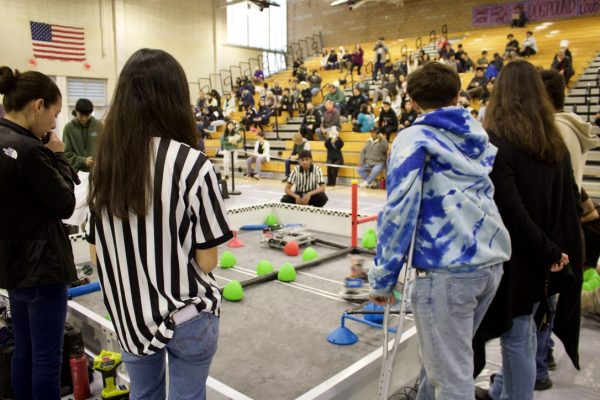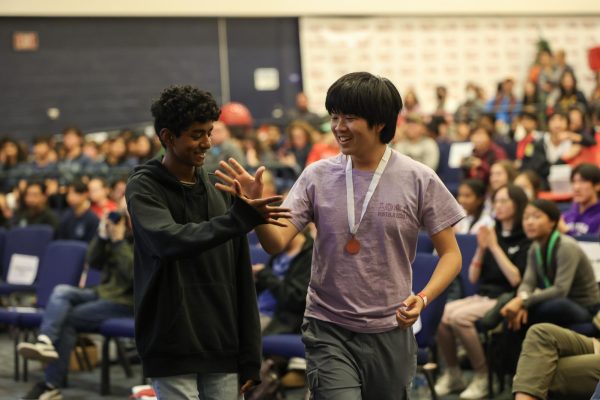Portola Pilot Takes Off at Virtual CSUN Journalism Day Conference
Individual awards for the contest include senior Ryne Dunman for first place in Features Writing, senior Michelle Kim for third place in Opinion Writing, senior Clara Ferreira Lopes for second place in Photography, sophomore Tara Vatandoust for second place in Features Writing and sophomore Tyler Kim for third place in News Writing.
Five Portola Pilot students placed in the top three of their respective categories at the 29th annual Journalism Day Conference held virtually on Oct. 23. California State University, Northridge’s journalism department hosted the event along with the Los Angeles Times High School Insider, announcing winners Oct. 26.
Students received the opportunity to compete in six categories: photo, sports, opinion, features, news or the newly-added social media category. Nineteen journalists volunteered to judge contests and present workshops at the conference, according to HS Insider.
Staff writer and sophomore Tyler Kim placed third in the news category, one of the most competitive categories, according to journalism adviser Brianna Rapp.
In the news contest, contestants wrote a news story about Senate Bill 98, which Gov. Gavin Newsom signed into law on Oct. 9 giving journalists access to closed-off protests and prohibiting law enforcement from interfering with journalists covering these events.
A representative from the Los Angeles Press Club spoke at a mock press conference in which writers listened, took notes and asked questions to acquire the necessary information for their stories, according to Kim.
I was excited to go to my first competition for writing, but there definitely was a sense of anxiousness because I wasn’t sure what to expect, especially because it was online.
— Tyler Kim
“I was excited to go to my first competition for writing, but there definitely was a sense of anxiousness because I wasn’t sure what to expect, especially because it was online,” Kim said. “Going in, while it was kind of exciting, like this is the LA Times, and I get to listen to all these panelists. It was somewhat nerve-wracking, especially since I didn’t know what to expect out of it.”
Co-editor-in-chief and senior Ryne Dunman placed first in features writing and competed last year in opinion writing.
“I feel like any time after I write something, I never have a clear perception of objectively how the quality is,” Dunman said. “Immediately after, I thought I did a pretty terrible job because I thought my angle was too complex and too all over the place. But after a second read, with a fresh set of eyes, I had a little more confidence in myself.”
Following the write-off and media contests, which took 90 minutes, the conference transitioned into virtual workshops that students could attend to gain knowledge from professional journalists and reporters. Workshops featured a broad range of topics, from utility journalism to visual storytelling.
Co-news editor and junior Celine Lee said “The Essentials of Visual Storytelling” was the workshop she learned the most from out of the two she attended.
“I think it helped me a lot because I don’t really specialize a lot in photography like journalistic photography; usually, I just do the writing,” Lee said. “So being able to learn not just as a journalistic writer, but also as a photographer really helped to refine my journalist skills overall.”
Concluding the five-hour event, Los Angeles Times deputy editor for culture and talent Joseph Serna presented a keynote address on the current culture of journalism. In this conversation, he emphasized how young people who aspire to be journalists can carve their own paths into the industry at any age, according to HS Insider.
But understanding why journalism still matters, why journalism is still relevant, why the work they’re doing is significant and gives them inspiration to keep pushing themselves into even higher levels of pursuits with their journalistic work.
— Brianna Rapp
“What I would hope students take away is that there’s a purpose to what they’re doing because I know sometimes people work really hard, and sometimes it’s not being noticed as much as they want it to,” Rapp said. “But understanding why journalism still matters, why journalism is still relevant, why the work they’re doing is significant and gives them inspiration to keep pushing themselves into even higher levels of pursuits with their journalistic work.”
Your donation will support the student journalists of Portola High School. Your contribution will allow us to purchase equipment and cover our annual website hosting costs.
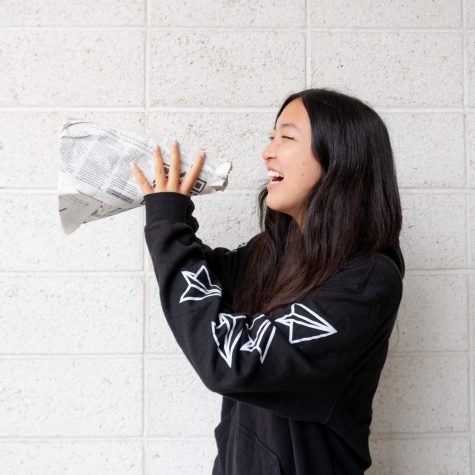
Claudia Lin is your co-editor-in-chief for her third year on the Pilot. She is looking forward to making as many memories as possible for her last year...



